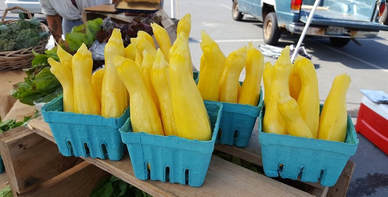 Spring is on its way, along with town meetings and wins for food sovereignty!
Spring is on its way, along with town meetings and wins for food sovereignty! These latest five towns are in five different counties, so this is not a case of near-by towns playing follow the leader. Campaign organizers are hoping to pass ordinances in clusters of towns, however, by adding a section to the model Local Food and Community Self-Governance ordinance language titled “Mutual Recognition and Inter-Municipal Government Collaboration,” allowing food producers in one ordinance town to operate in others as well. Supporters hope to see some creative ideas coming out of this.
These town-level victories are especially sweet after last year's fight to retain most provisions of the Maine Food Sovereignty Act, a state bill that was passed and signed into law but then came under criticism by the USDA. “Getting to this place took a great deal of work with our allies to write an amendment to the Maine Food Sovereignty Act that would satisfy the USDA’s objections and still give us most of what we wanted,” said Bonnie Preston, Local Food RULES! Organizer and Alliance co-Vice Chair. “We succeeded! The Dept. of Agriculture and their lobbyist friends were shocked when the legislature voted for our amendment and not theirs, which had managed to remove all food from the Food Sovereignty Act. Once that was done, we had to work even harder to revise the LFCSGO to incorporate the changes in the law, but we got that done, too.”
News about the ordinance is also spreading thanks to Richard King, who homesteads with his wife Maria and who introduced the ordinance to his town in 2016. He has updated the website with a map of all the towns that have passed the ordinance, color-coded for dates, and more helpful material is on the way.
The campaign also has an ally in Maine's Granges. “The first one we visited was in Madison, a town that passed the ordinance in 2016,” Bonnie noted. “We learned that they had a farmers’ market that does not require venders to be licensed, and they were happy with the fact that they therefore had 'poor people buying from poor farmers,' a local economy that works well in very rural areas. No $6.00 lattes at that market!
“One person who attended the meeting was a selectman from a near-by town who is a lawyer, and he came in very skeptical about the ordinance, and left eager to pass it in his town, and happy to have us refer towns with questions about legal issues to him. He is truly one of our most valuable supporters.”
The Local Food RULES! Campaign is making great progress in Maine, but to change the way we do agriculture in this country, more towns and states must be involved. They are beginning to reach out to inform more people about this work; the more places that pass the ordinance, the more successful we will all be. What is now being called regenerative agriculture must take over from the industrial model. It will have huge benefits for the health of people, animals, and the environment.

 RSS Feed
RSS Feed
